About
Diabetes
Diabetes and cardiovascular disease (CVD) are closely interconnected, with diabetes significantly increasing the risk of developing CVD. As frontline healthcare providers, nurses play a critical role in addressing this relationship, identifying at-risk individuals, and implementing strategies to prevent complications. Understanding the link between these two conditions is essential to improving patient outcomes.
Diabetes, particularly type 2 diabetes, is a major risk factor for CVD. Chronic hyperglycemia leads to damage in blood vessels and accelerates the progression of atherosclerosis, a condition characterized by plaque buildup in the arteries. This damage contributes to a higher risk of heart attacks, strokes, and other cardiovascular events. In fact, adults with diabetes are two to four times more likely to develop CVD compared to those without diabetes.
Resources
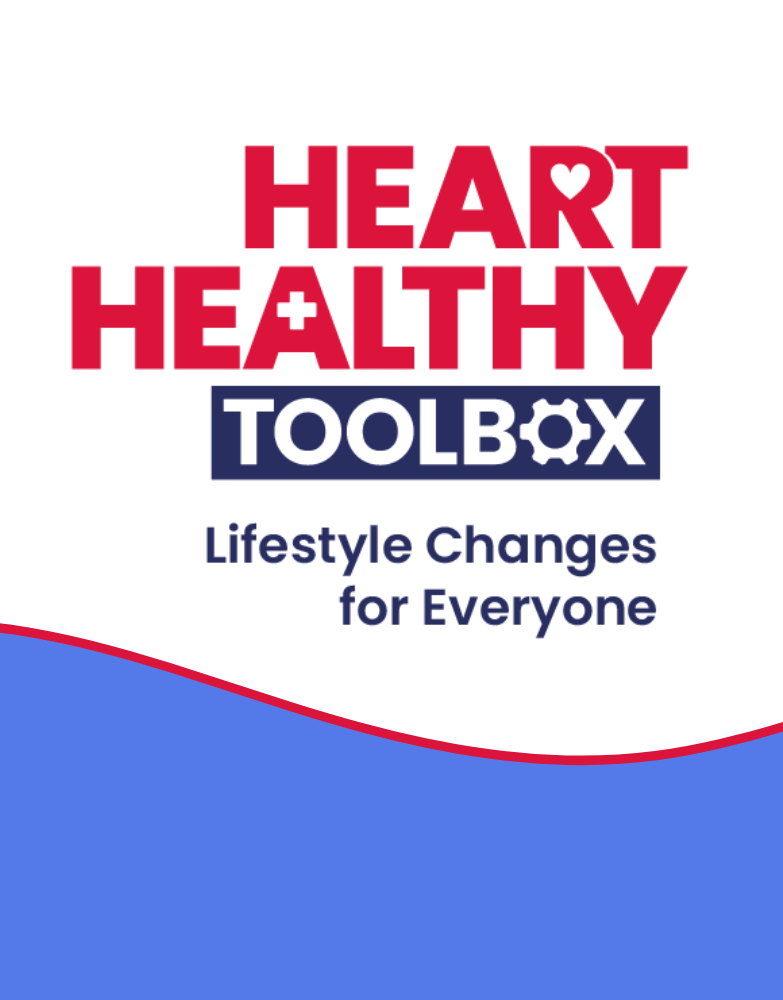
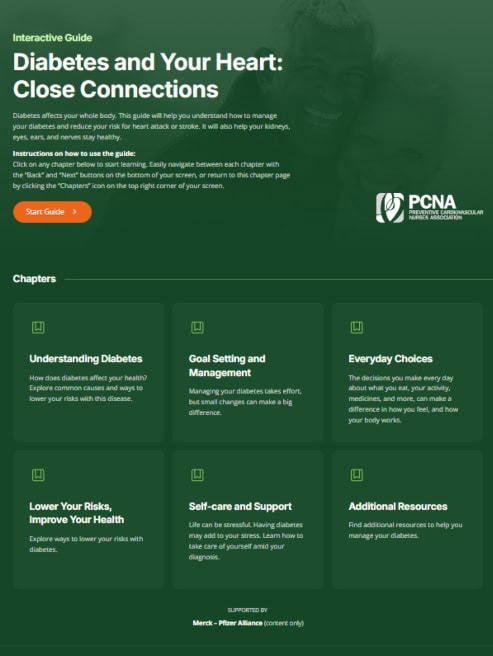
Online Interactive Guides
Diabetes and Your Heart: Close Connections Online Interactive Patient Tool
June 12, 2025

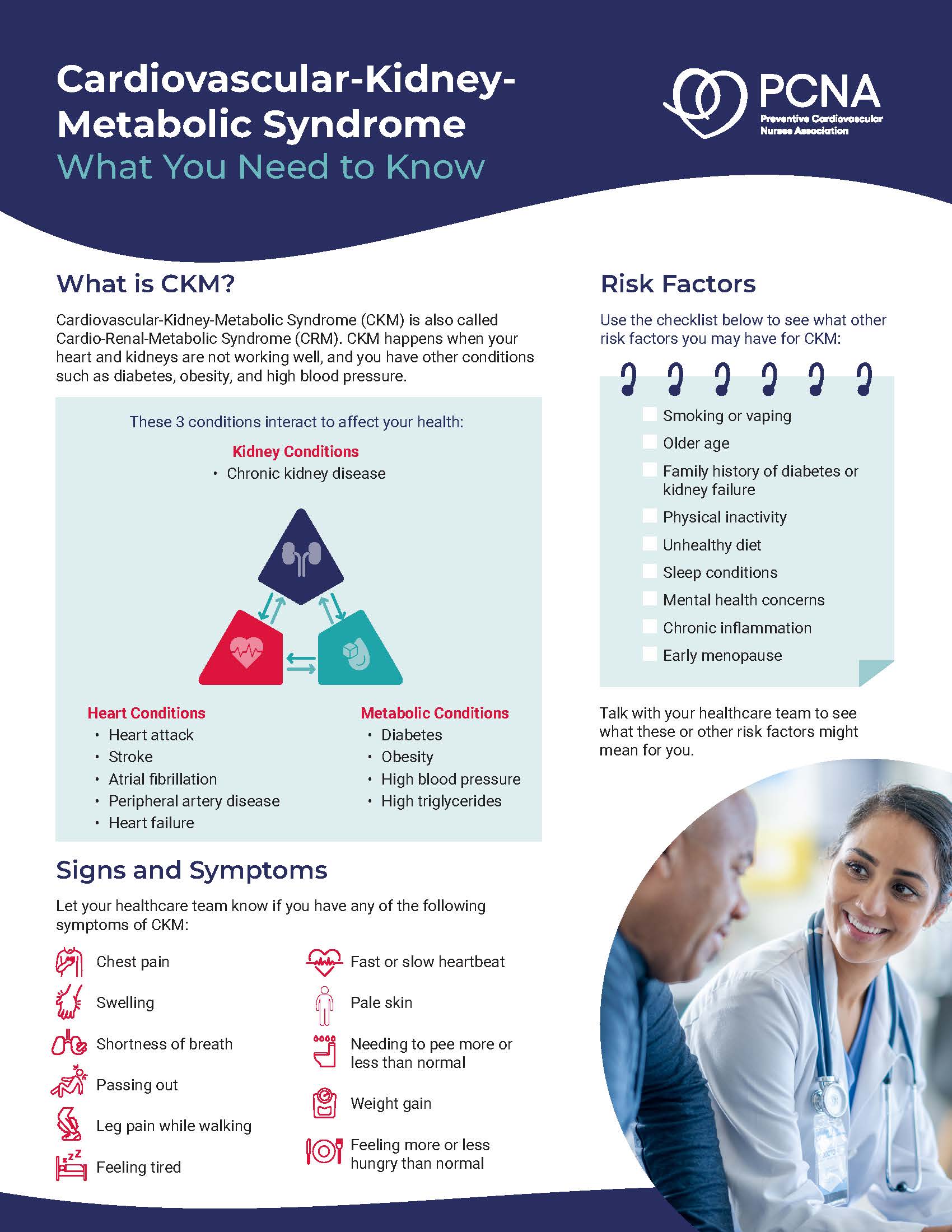
Patient Education Handouts
Cardiovascular-Kidney-Metabolic Syndrome: What You Need to Know
June 26, 2025

Courses
0.8 CE contact hours
0.8 Pharmacology contact hours
Free
0.6 CE contact hours
0 Pharmacology contact hours
Free
0.6 CE contact hours
0.6 Pharmacology contact hours
Free
News
Ketosis vs. Ketoacidosis: What’s the Difference?
November 10, 2025
New Style of Patient Education Tool
January 01, 2025
Diabetes Care and Cardiovascular Health: A Three-part Podcast Series
November 01, 2023
Podcast Episodes
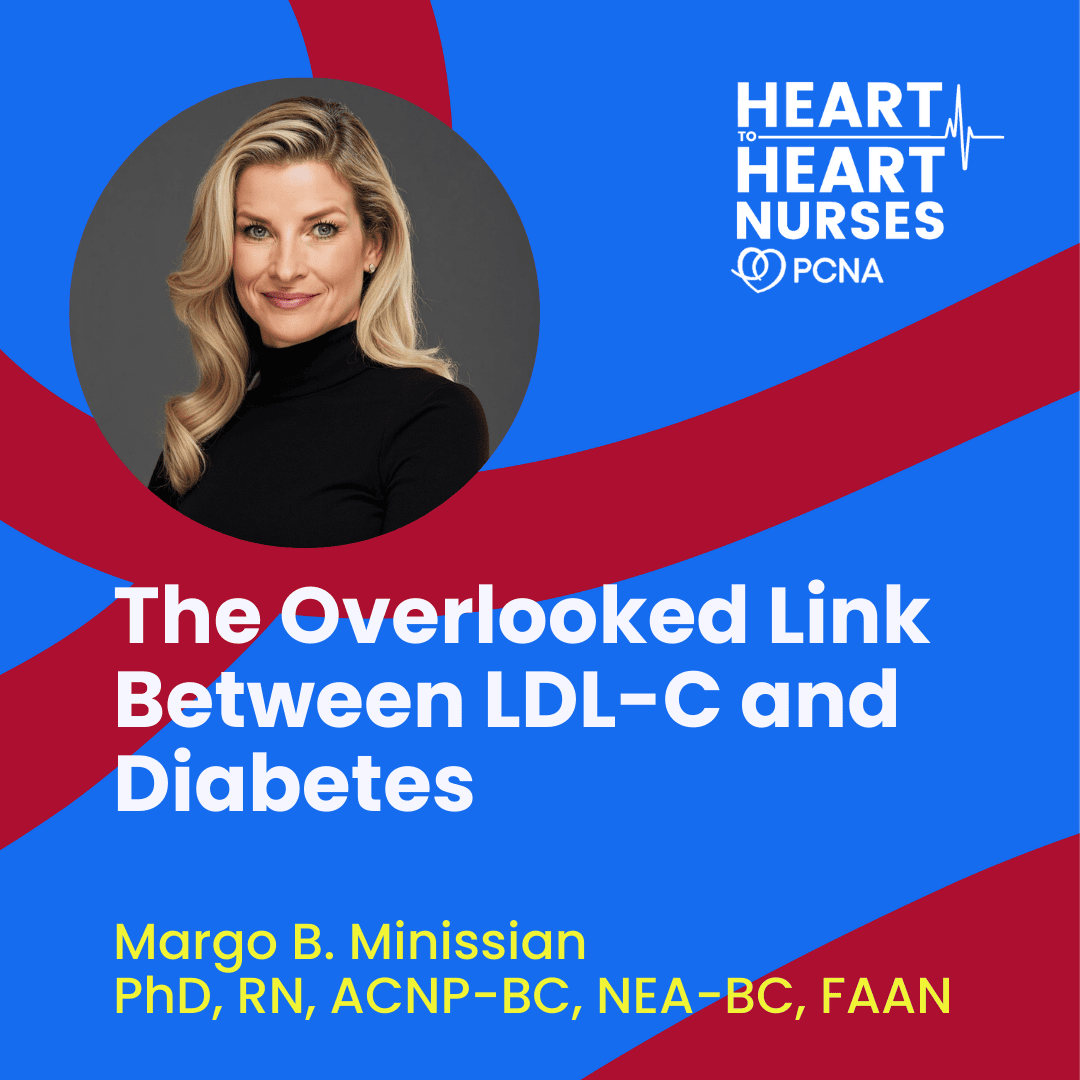
Atherosclerotic Cardiovascular Disease (ASCVD), Diabetes, Lipid Management, Risk Assessment and Management
The Overlooked Link Between LDL-C and Diabetes
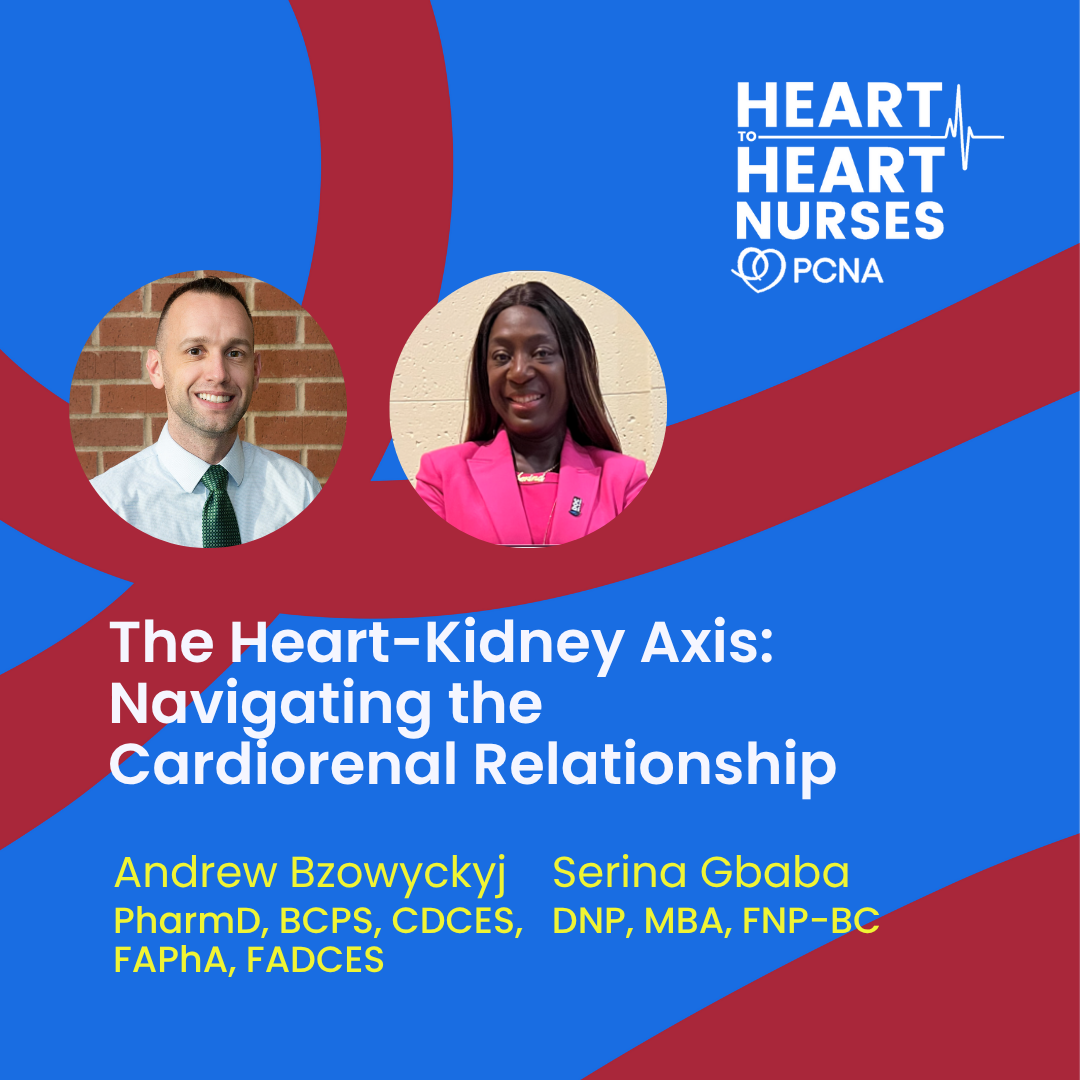
Coronary Artery Disease (CAD), Diabetes, Kidney Disease, Obesity Management
The Heart-Kidney Axis: Navigating the Cardiorenal Relationship

Coronary Artery Disease (CAD), Diabetes, Kidney Disease, Obesity Management





